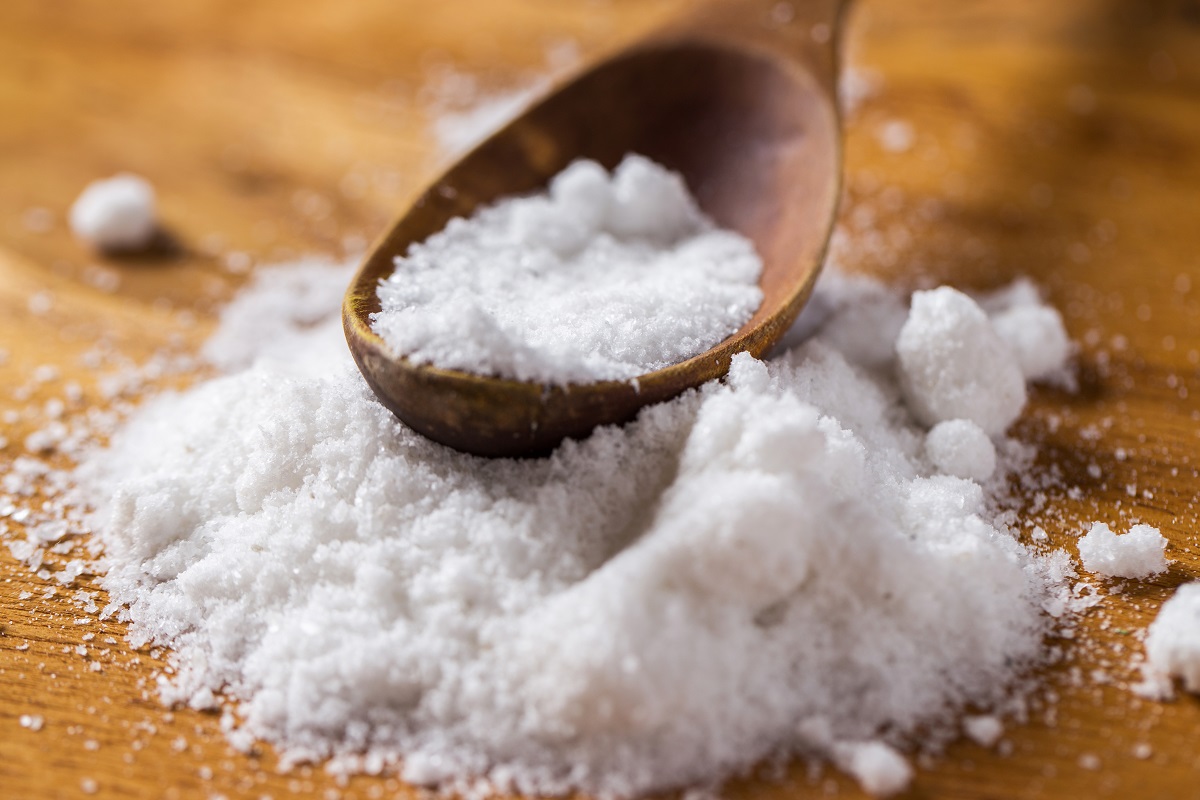Electrolytes are minerals in the body that hold an electric charge. They’re essential for a myriad of physiological roles, from muscle contraction to nerve function. Here’s a deep dive into understanding these minerals, why they’re crucial and how to ensure you’re getting the right amount.
A close look at major electrolytes
Sodium (Na+) – A key electrolyte in our system
Sodium, an essential electrolyte, plays a pivotal role in our body. It is fundamentally important for the proper functioning of nerves and muscles. This electrolyte is also responsible for maintaining the fluid balance within and outside our cells, ensuring that our body’s hydration levels remain stable.
Sodium’s place in sports nutrition:
For athletes and those who engage in rigorous physical activity, understanding the role of sodium is paramount. This electrolyte aids in fluid retention, ensuring that athletes stay hydrated during intense sessions. Furthermore, muscle contractions, an integral aspect of any sport or exercise, are heavily reliant on appropriate sodium levels.
The medical significance of sodium:
When we talk about the medical implications of sodium, it’s crucial to understand the risks associated with its imbalance. A condition called hyponatraemia arises when sodium levels in the body are too low. Symptoms can range from mild confusion to life-threatening seizures. Conversely, hypernatremia is a condition where there’s an excess of sodium. This can lead to dehydration, as the body’s mechanism to conserve water gets disrupted.
The everyday implications of sodium:
In our day-to-day lives, sodium is both a friend and a foe. While it’s undeniably essential for our health, consuming excessive amounts can have adverse effects. One of the most talked-about concerns is the potential rise in blood pressure due to high sodium intake, which can increase the risk of cardiovascular diseases.
Dietary sources of sodium:
Where do we find sodium in our diet? Commonly, table salt is the primary source. However, one might be surprised by the amount of sodium present in processed foods. Canned soups, certain dairy products and many ready-to-eat meals have high sodium content. Being aware of these sources is key to managing one’s intake.

Recommendations for sodium intake:
For the average adult, it’s recommended to consume less than 2,300 mg of sodium per day. However, aiming for a target closer to 1,500 mg/day is even more beneficial for overall health. It’s worth noting that these figures can vary based on individual health conditions and requirements.
In conclusion, while sodium is undeniably a crucial electrolyte for our body’s functioning, it’s of paramount importance to ensure a balanced intake. By being mindful of our dietary choices and understanding the implications of sodium, we can make informed decisions for our health.
Potassium (K+): A key electrolyte for overall health
Potassium stands out as one of the most essential electrolytes in our body. Its role is vast and multi-faceted, deeply influencing the functionality of vital organs such as the heart and kidneys. Additionally, this electrolyte plays a pivotal role in various biochemical processes, ensuring the proper functioning of our cells and tissues. Without sufficient potassium, our organs would struggle to operate effectively.
The importance of potassium in sports nutrition
For those who engage in sports or regular physical activity, potassium is a game-changer. As an electrolyte, it’s instrumental in muscle function. Without adequate potassium levels, athletes might experience muscle weakness or fatigue. Furthermore, it plays a protective role, helping prevent muscle cramps that can hamper performance or even lead to injuries.
Medical implications of potassium imbalance
The importance of maintaining balanced potassium levels can’t be overstated. A deficiency in this electrolyte, medically termed as hypokalaemia, can lead to significant heart irregularities. Conversely, an excess of potassium, known as hyperkalaemia, can have grave consequences, with severe cases even proving fatal. Ensuring a balanced intake and monitoring for any signs of imbalance is crucial for our overall health.
Everyday benefits of potassium
For the everyday Brit, potassium plays a discreet yet crucial role in wellness. One of its standout benefits is its ability to aid in regulating blood pressure. With cardiovascular health being a prime concern for many, ensuring adequate potassium intake can be a proactive step in heart health management.
Dietary sources of this essential electrolyte
Potassium-rich foods are both delicious and easily accessible. Bananas, often hailed as a potassium powerhouse, are a convenient snack choice. Oranges provide a refreshing source, while potatoes and spinach can effortlessly be incorporated into daily meals to bolster one’s potassium intake.
Recommendations for potassium intake
Guidelines suggest that adults should aim for a potassium intake ranging between 3,500 to 4,700 mg per day. This ensures that one gets the full spectrum of benefits offered by this indispensable electrolyte without veering into the territory of excessive consumption.

Calcium (Ca2+): The cornerstone electrolyte for bone health
Calcium, an essential electrolyte, plays a foundational role in our physiological well-being. As one of the body’s major electrolytes, it’s involved in numerous functions that might surprise you, beyond just the realm of bone health.
Bone and teeth formation: At the forefront of calcium’s roles is its involvement in the formation and maintenance of bones and teeth. Nearly 99% of the body’s calcium is stored in the bones and teeth, helping to strengthen them.
Blood clotting: Calcium plays an often-underestimated role in helping blood to clot. This process is vital for preventing excessive bleeding when we sustain a cut or injury.
Muscle function: Muscle contractions, essential for movement, heavily rely on calcium. When muscles need to contract, calcium rushes into the muscle cells; when it’s time to relax, calcium exits.
Sports nutrition
For athletes and those who lead an active lifestyle, calcium’s importance is multifaceted:
Muscle contraction: Efficient muscle function is crucial for athletes. Adequate calcium ensures muscles contract and relax properly, aiding in optimal performance.
Bone health: High-impact sports and regular training put strain on bones. Adequate calcium intake ensures bone density is maintained, reducing the risk of fractures.
Medical significance
Osteoporosis: A significant medical concern associated with calcium is osteoporosis, a condition where bones become fragile and brittle. This condition arises from a long-term deficiency in calcium, emphasizing the need for adequate intake throughout life.
Everyday implications
For robust bones and teeth: In day-to-day life, calcium is a cornerstone for ensuring one’s bones and teeth remain robust. This becomes especially vital as we age and bone density naturally diminishes.
Prevention: Regular intake can help prevent various conditions, such as weak nails, hair loss and numbness or tingling in the extremities.
Dietary sources
Dairy products: Milk, cheese and yoghurt remain some of the richest sources of calcium.
Green vegetables: Broccoli, kale and spinach are excellent non-dairy sources.
Fortified foods: In the UK, certain foods are fortified with calcium, such as some breads and plant-based milks.
Recommendations
For most adults, the recommended daily intake sits at 1,000 mg/day. However, this requirement can shift with age. Post-menopause, women, in particular, may need more due to the increased risk of osteoporosis.
Conclusion
Calcium, a pivotal electrolyte, remains central to our health throughout life. Whether you’re an athlete aiming for peak performance or someone looking to maintain general health, understanding and ensuring optimal calcium intake is quintessential.
Magnesium (Mg2+): The essential electrolyte
Magnesium, often overshadowed by its more commonly discussed counterparts like calcium and potassium, plays a pivotal role in our body’s day-to-day functions. From the athlete sprinting on the track to the average person trying to stay awake during a mid-afternoon slump, magnesium’s influence is omnipresent. Let’s delve deeper into this mighty electrolyte’s significance.
Physiological roles of magnesium:
Magnesium is intricately woven into our body’s biochemical tapestry. A participant in over 300 enzyme reactions, it’s central to processes such as protein synthesis, muscle and nerve functions and most importantly, the production of energy. Simply put, without magnesium, our cells would struggle to generate the energy they require.
Magnesium in sports nutrition:
Athletes, whether professional or recreational, should take keen interest in their magnesium levels. Magnesium aids muscle contractions – a fundamental aspect of any physical activity. Furthermore, it plays a role in the production of adenosine triphosphate (ATP), the primary molecule that stores and transfers energy in our cells. An athlete’s performance can thus be significantly impacted by their magnesium intake.
Medical significance of magnesium:
The implications of magnesium deficiency can be severe. At the milder end of the spectrum, a lack can lead to muscle cramps, a common complaint amongst many. However, on the graver side, arrhythmias – irregular heartbeats that can lead to further complications – can be exacerbated or even triggered by insufficient magnesium levels. Therefore, maintaining optimal levels isn’t just about well-being; it can be a matter of life and death.
Everyday implications of magnesium:
Beyond the confines of medical rooms and sports arenas, magnesium’s importance filters into our daily lives. Essential for energy production, it can influence our levels of alertness and vigour. Moreover, magnesium is crucial for bone health, working alongside calcium to ensure our skeletal system remains robust.

Dietary sources of magnesium:
The good news? Nature has provided us with a bounty of magnesium-rich foods. Leafy greens, such as spinach and kale, are packed with this vital electrolyte. For those who prefer a crunch, nuts like almonds and cashews are a tasty option. Whole grains, including brown rice and quinoa and fish, particularly mackerel, are other excellent sources.
Recommendations:
For the average adult, an intake of 300-400 mg/day of magnesium is advised. However, it’s always beneficial to consult with a healthcare professional, especially if one is actively involved in sports or has underlying health conditions.
In summary:
Magnesium, a multifaceted electrolyte, is indispensable to our health and daily functioning. From supporting elite athletic performance to ensuring the heart’s rhythmic dance doesn’t miss a beat, its significance cannot be overstated. A balanced diet, rich in magnesium, can set the stage for a life of vitality and wellness.
Chloride (Cl-): An essential electrolyte for body balance
Chloride is pivotal in maintaining fluid equilibrium in and out of our body’s cells. This electrolyte ensures that our cells receive the right amount of nutrients and are able to eliminate waste products efficiently.
Sports nutrition:
For those who are active in sports, chloride plays a significant role alongside sodium in regulating fluid balance. When you sweat during physical activity, you’re not just losing water but also vital electrolytes like chloride and sodium. These need to be replenished to prevent dehydration and to maintain optimum muscle function.
Medical significance:
While imbalances in chloride levels are relatively rare, they can still occur, especially in situations of severe dehydration or certain medical conditions. An abnormal level of chloride in the body can have implications on the balance of other electrolytes, particularly sodium. It’s always vital to monitor and treat any such imbalances promptly to prevent complications.
Everyday implications:
Beyond the more complex physiological roles, chloride has a straightforward daily function: aiding in digestion. It’s a crucial component of the hydrochloric acid found in our stomach, which assists in breaking down food.

Dietary sources: One might wonder where we obtain our daily dose of chloride. It’s primarily sourced from table salt, which is a combination of sodium and chloride. However, it’s also found in many vegetables and in lesser amounts in some meats and dairy products.
Recommendations: The recommended intake of chloride tends to be closely related to that of sodium, given they’re often consumed in tandem. It’s recommended that one doesn’t just focus on sodium intake but also recognises the importance of balancing both these electrolytes. Too much salt in the diet can have adverse health effects, so it’s prudent to consume in moderation, bearing in mind both sodium and chloride needs.
In conclusion: Chloride, though not often spotlighted as much as other electrolytes, holds a crucial role in our body’s daily functions. From sports enthusiasts to anyone aiming for a balanced diet, understanding and ensuring an adequate intake of this electrolyte is vital for health and wellbeing.
Bicarbonate (HCO3-): The unsung electrolyte
In the realm of essential electrolytes, bicarbonate, albeit lesser discussed, plays a pivotal role in maintaining our body’s equilibrium. Let’s delve deeper into the multifaceted functions and implications of this vital electrolyte.
Physiological roles:
Bicarbonate is integral to sustaining the body’s pH balance. The human body is sensitive to even minor deviations from its ideal pH level, which hovers around a slightly alkaline 7.4. Bicarbonate acts as a buffer, neutralising excess acid in the blood, ensuring that the body remains within this narrow pH range.
Sports nutrition:
Endurance athletes, in particular, owe much to bicarbonate. During prolonged physical exertion, muscles produce lactic acid, which can lead to muscle fatigue and a burning sensation. Bicarbonate buffers this lactic acid, delaying the onset of fatigue and allowing athletes to push themselves further and for longer durations. There is a growing interest in “bicarbonate loading” – a method where athletes increase their bicarbonate levels before an event to improve performance. However, while some studies show potential benefits, the optimal dosages and timings remain topics of debate.
Medical significance:
Bicarbonate’s role isn’t limited to sports. Its medical importance is underscored by its connection to kidney and lung function. The kidneys produce bicarbonate to neutralise excess acids in the body. Moreover, any alteration in bicarbonate levels can be an indicator of kidney disorders. Similarly, the lungs help regulate bicarbonate levels by controlling the carbon dioxide (CO2) concentration in the blood. Conditions like chronic obstructive pulmonary disease (COPD) can affect this delicate balance, underscoring bicarbonate’s medical relevance.
Everyday implications:
For the layman, bicarbonate’s primary role is to maintain the body’s acid/base balance. This balance is essential for proper nutrient absorption, enzyme activity and overall cellular function. Therefore, while we might not think about bicarbonate in our daily lives, it’s silently working behind the scenes, ensuring our body operates smoothly.
Dietary sources:
An interesting facet of bicarbonate is its source. Unlike other electrolytes we actively seek in our diets, bicarbonate is largely produced by our bodies, particularly by the kidneys. This endogenous production means that under normal circumstances, we don’t need to specifically include it in our diet. However, it also stresses the importance of kidney health in maintaining adequate bicarbonate levels.
In conclusion, while bicarbonate might not make headlines like sodium or potassium, its silent yet significant contributions to our body’s well-being can’t be overstated. From sports nutrition to everyday physiological processes, this electrolyte remains a cornerstone of health.
Phosphate (PO4^3-): A vital electrolyte for multiple body functions
Electrolytes play an integral role in the human body and phosphate stands tall amongst them. As a predominant anionic electrolyte, phosphate has its fingers in many pies, from bone development to aiding muscle function. Here’s a deeper exploration into why this electrolyte is so essential.
Physiological roles
Phosphate is pivotal in the construction and repair of bones and teeth. Beyond this structural role, phosphate aids in ensuring our nerves function optimally. As an electrolyte, its role is not just confined to one task; rather, it serves as a lynchpin in many critical processes within the body.
Sports nutrition
For athletes and those leading an active lifestyle, understanding the role of electrolytes, especially phosphate, is crucial. ATP (Adenosine Triphosphate) is the primary energy currency of cells. Phosphate is instrumental in ATP production, providing athletes with the energy they need to perform at their peak. This direct link between phosphate and energy production highlights its importance in sports nutrition.
Medical significance
Electrolyte imbalances are not something to be taken lightly. An imbalance in phosphate levels, either too much or too little, can impact bone health. In medical parlance, conditions such as hypophosphatemia (low phosphate levels) or hyperphosphatemia (excessive phosphate levels) can have consequences that range from brittle bones to problems in muscle function.
Everyday implications
In day-to-day life, the significance of this electrolyte might not be obvious, but its impact is profound. Phosphate’s role in energy production ensures we have the vitality and vigour to go about our daily tasks. Ensuring a balanced intake of this electrolyte is key to maintaining this energy balance.
Dietary sources
For those wondering how to maintain optimal phosphate levels, it’s simpler than one might think. Common foods rich in phosphate include dairy products, meats (like poultry and red meat) and legumes such as beans. Incorporating these into one’s diet can help ensure adequate phosphate intake.
Recommendations
For adults, the recommended daily intake stands at around 700 mg/day. However, individual needs can vary based on factors like age, activity level and overall health. It’s always advisable to consult with a healthcare professional or nutritionist to understand personalised needs.
In conclusion
Phosphate, as an electrolyte, holds a place of prominence in our physiological processes. From athletes striving for peak performance to individuals aiming for everyday vitality, maintaining balanced phosphate levels is undeniably essential. Proper understanding and mindful dietary choices can help in harnessing the full potential of this powerful electrolyte.
The interplay between electrolytes
When it comes to the intricate dance of our body’s processes, electrolytes take the centre stage. They’re not lone rangers but rather form a tightly knit community where the action of one affects the other.
The relationship between sodium and potassium is a perfect illustration. These two electrolytes function in tandem, maintaining the delicate equilibrium of our cellular processes. Too much salt (sodium) in our diet, often a consequence of indulging in processed foods or adding excessive table salt, can lead to reduced potassium levels in our body. This imbalance can manifest in symptoms such as fatigue, muscle cramps and even palpitations.
Likewise, calcium and magnesium share a close bond. When calcium levels surge, it can inhibit the body’s ability to absorb magnesium effectively. This is concerning because magnesium plays a crucial role in more than 300 enzymatic reactions in our body, including energy production and muscle function.
External factors, such as dehydration or strenuous exercise, can further upset the electrolyte balance. For instance, during intense physical activity, the body loses fluids and electrolytes through sweat. If not replenished timely, this can lead to dizziness, muscle cramps and in severe cases, heat-related illnesses.
Electrolytes and age: Special considerations
Athletes
Endurance athletes or those partaking in high-intensity sports often experience significant electrolyte losses due to profuse sweating. It’s not just water they’re losing, but a mix of sodium, potassium, chloride and other vital electrolytes. Therefore, it’s pivotal for athletes to hydrate not just with water, but with specially formulated sports drinks that provide both fluids and the essential electrolytes. This aids in maintaining performance, speeding up recovery and reducing the risk of muscle cramps.
Older people
Ageing brings about numerous changes in our body. One of the affected areas is the renal system. Reduced kidney function in the older people makes them susceptible to electrolyte imbalances. Additionally, as we age, our sensation of thirst diminishes, which can lead to inadequate fluid intake and consequently, an electrolyte imbalance. Certain medications, commonly prescribed for the older age group, can also affect electrolyte levels. Regular check-ups, a balanced diet and being aware of the symptoms of imbalances are crucial for this demographic.
Children
Children’s bodies are in a constant state of growth and development. Their bones are maturing and organs are evolving. This dynamism means that they require a well-balanced intake of electrolytes to support these processes. It’s essential to keep an eye on their diet, ensuring they consume natural, nutrient-rich foods. Additionally, during illnesses, especially those accompanied by vomiting or diarrhoea, children lose a significant amount of fluids and electrolytes. Parents and caregivers should ensure adequate hydration during these times, possibly using oral rehydration solutions if needed.
Practical tips for maintaining electrolyte balance
Stay hydrated: In the UK, with its varied climate, staying hydrated is essential, especially during the warmer months or when engaging in physical activity. Aim for about 6-8 glasses of fluid a day.
Eat a balanced diet: Prioritise fresh fruits, vegetables, whole grains and lean proteins. These foods are naturally rich in essential electrolytes.
Limit processed foods: Ready meals, takeaways and packaged snacks are often laden with excessive sodium and lack other crucial electrolytes. Be mindful of your intake.
Listen to your body: Our body is quite adept at sending signals. Symptoms such as muscle cramps, fatigue, dizziness or an irregular heartbeat could be indicative of an electrolyte imbalance. If you experience these symptoms, especially if they persist, seek medical advice.
Conclusion of electrolytes
Electrolytes are the unsung heroes of our physiological processes. Understanding their roles and ensuring a balanced intake can pave the way for better health and vitality. Whether you’re a sportsperson or someone simply aiming for a balanced diet, giving these minerals their due importance is paramount.
